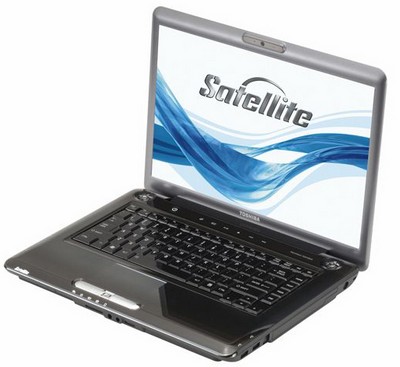But one thing hasn't changed in the past year: It's a pain to sift through all the specs and models to find a computer for you or your student.
Ta-da! Behold our 2008 guide to laptops.
8 TOP PICKS:
_ ACER ASPIRE 4720
.gif)
This $600 number has a crisp 14-inch screen that's not too small and offers adequate video playback performance, if you don't push it too hard. If you can spare an extra $80, definitely double the memory to 2 gigabytes to take greater advantage of the Intel Core 2 Duo processor. (www.acer.com)
_ ASUS EEE PC 900

The king of the mini-laptops, the $650 EeePC 900 has a 9-inch screen that will have you scrolling a bit to see a full Web page, but the performance is a step up from last year's EeePC that defined this category. (usa.asus.com)
_ DELL STUDIO 15

For about $850, you can get a sharp 15-inch screen with a DVD writer, 3 gigabytes of memory and a long-lasting battery. It's a budget computer that doesn't feel budget. (dell.com)
_ FUJITSU LIFEBOOK A6210

The 15-inch screen isn't the sharpest, but it comes with a DVD writer and 3 gigabytes of memory, for about $900. You'll get used to the slightly cramped keyboard but praise its durability. (fujitsu.com/us)
_ HP MINI-NOTE

Hewlett-Packard's $750 entry in the mini-laptop game is an established favorite. (hp.com)
_ MACBOOK, MACBOOK PRO, MACBOOK AIR

You'll spend more for a Mac (at least $1,100), but they come loaded with hardware and software that cost extra on other machines, so you're ready to go right out of the box. Plus, they have an undeniable cool factor, and if you want, you can buy the Vista operating system and install it on your computer to give you Mac-and-Windows flexibility. (apple.com)
_ MSI WIND

A newcomer to the mini-laptop game, the $500 MSI Wind has a 10-inch screen that, like many displays in this price range, seems washed out in bright sun. With its bigger screen, more comfortable keyboard and comparable performance, the Wind challenges the Asus Eee PC 900. (www.msimobile.com)
_ TOSHIBA SATELLITE A300

The $900 A300 carries on the Toshiba Satellite tradition of providing all-around value. It's heavier than many of the computers on this list, but with a 320 gigabyte hard drive and 4 gigabytes of memory standard, it is a winner. (toshiba.com)
___
BEFORE YOU BUY
_ If you have a choice of batteries for your laptop, spring for a six-cell battery, which has become an option on many computers, even low-cost ones. While a three-cell battery can provide up to three hours of use, a six-cell can go up to five hours between charges.
_ Budget extra money to install as much memory as the computer can handle (at least 2 gigabytes). That's the quickest way to improve a computer's performance.
_ Think how you or your student will use the computer. Weight and screen size matter. For note-taking, surfing the Web and maximum portability between classes, steer toward the smaller, less expensive laptops. For editing audio or video, running big spreadsheets or other demanding assignments, you'll want a larger screen and bigger hard drive, which makes for a heavier backpack if your student has to lug the computer around campus.
___
LOOKING FOR A DEAL?
_ Go to the computer-maker's Web site and customize the computer you want to buy. Choosing your own setup online can be more confusing and frustrating than buying a preconfigured model in a store, but it lets you save money by choosing lower-priced options (for example, a smaller, less expensive hard drive; meanwhile you can save up to buy a big external hard drive).
_ Go with a hard disk drive, not the slightly more expensive solid-state drive. Solid-state drives are lighter than hard disk drives; don't undergo the wear and tear of hard disk drives; and don't require a noisy fan to keep cool. But the original notion that solid-state drives would last longer than hard disk drives isn't proving to be true, at least with early components. Computer engineers are working on the problem, but for now, I would get a hard disk drive.
----------


No comments:
Post a Comment